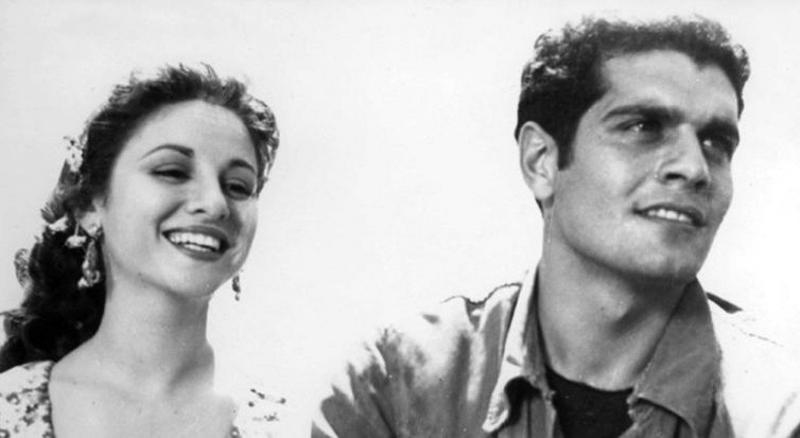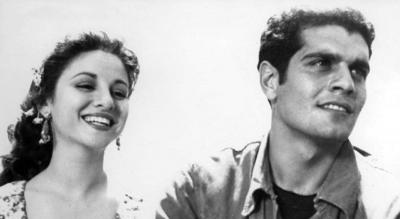Love stories portrayed by stars in artistic works have sometimes transitioned into real life, making what is shown on screen merely a reflection of reality. However, when love dominates the lives of stars, its impact is not always positive in their artistic careers; it can lead to crises and disasters, as the saying goes, "Some love affairs lead to death."
On the occasion of Valentine's Day, celebrated annually on February 14, art critic Tarek El Shennawy spoke to "Al Arabiya Net" about the secrets of the most prominent artistic couples and what transpired behind the scenes. He emphasized that couples have been a long-standing and intimate part of cinema worldwide, describing this phenomenon as both a fire and a light at the same time, recalling the story of Anwar Wagdy and Layla Murad, who starred together in eight films.
Despite the small number, audiences feel as if they have seen dozens of works together, due to the significant impact of their films, which represent the light for this duo. However, the fire ignited when Layla discovered Anwar's betrayal. At that time, she requested a divorce, and Wagdy decided to take revenge by throwing a caustic substance at her, accusing her of collaborating with the Israeli enemy—a claim that everyone later discovered was false, but it negatively affected her.
El Shennawy also discussed the couple of Fardous Abdel Hamid and her husband, director Mohamed Fadel, who, out of love, insisted on casting his wife in roles in recent years. This led to her appearing pregnant in the series "The Laughing Cry," despite being in her 80s, which sometimes made her husband’s vision of her illogical, preventing him from utilizing her talent effectively. El Shennawy believes many of Fadel's works diminished due to his insistence on having Fardous Abdel Hamid, despite acknowledging her great talent.
Regarding the case between Najat Al Saghira and Baligh Hamdi over the song "The Black Eyes," El Shennawy recounted that Najat was supposed to sing it and even filed a lawsuit against Baligh, who chose out of love to let Warda perform it instead. Warda heard it by chance, requested Baligh let her sing it, and he complied, which angered Najat.
El Shennawy noted that love was also behind Egyptian actor Nour El Sherif's withdrawal from the film "The Ghoul" due to what was happening with Boussy. He stated that Boussy expressed interest in a particular character and asked Nour to recommend her for the role. Nour approached director Samir Seif, who had already cast Nelly. When the director informed Nour that Nelly was suitable for the part, Nour decided to withdraw from the film as a form of pressure. However, Samir did not change his decision, bringing in Adel Imam instead of Nour.
Despite the sensational love story between Omar Sharif and Faten Hamama, the relationship had different behind-the-scenes dynamics about Faten herself. El Shennawy recounted how her first husband, director Ezz El-Din Zulficar, believed in her talent and continued working with her after their divorce, even producing the film "The River of Love," which starred Omar Sharif, who went on to marry Faten. After her separation from Omar, Faten refused to work with him in any artistic project, such as in the film "Land of Dreams," when director Dawood Abdel Sayed considered Omar for the lead but was turned down by Faten, resulting in the role going to Yahya El Fakharany.
Finally, El Shennawy spoke about the duo of Kamal El Shenawy and Shadia, who hold the record for the most collaborative works in the history of Arab cinema, having made 36 films together—an unprecedented achievement. The audience often believed that Kamal was married to Shadia, but the surprising fact is that he was married to Shadia's sister, Afaf, who was also an actress with some roles. The critic mentioned that Kamal once told him that even in his later years, he still received messages from the audience inquiring about Shadia and their lives together, believing that he was married to her.




